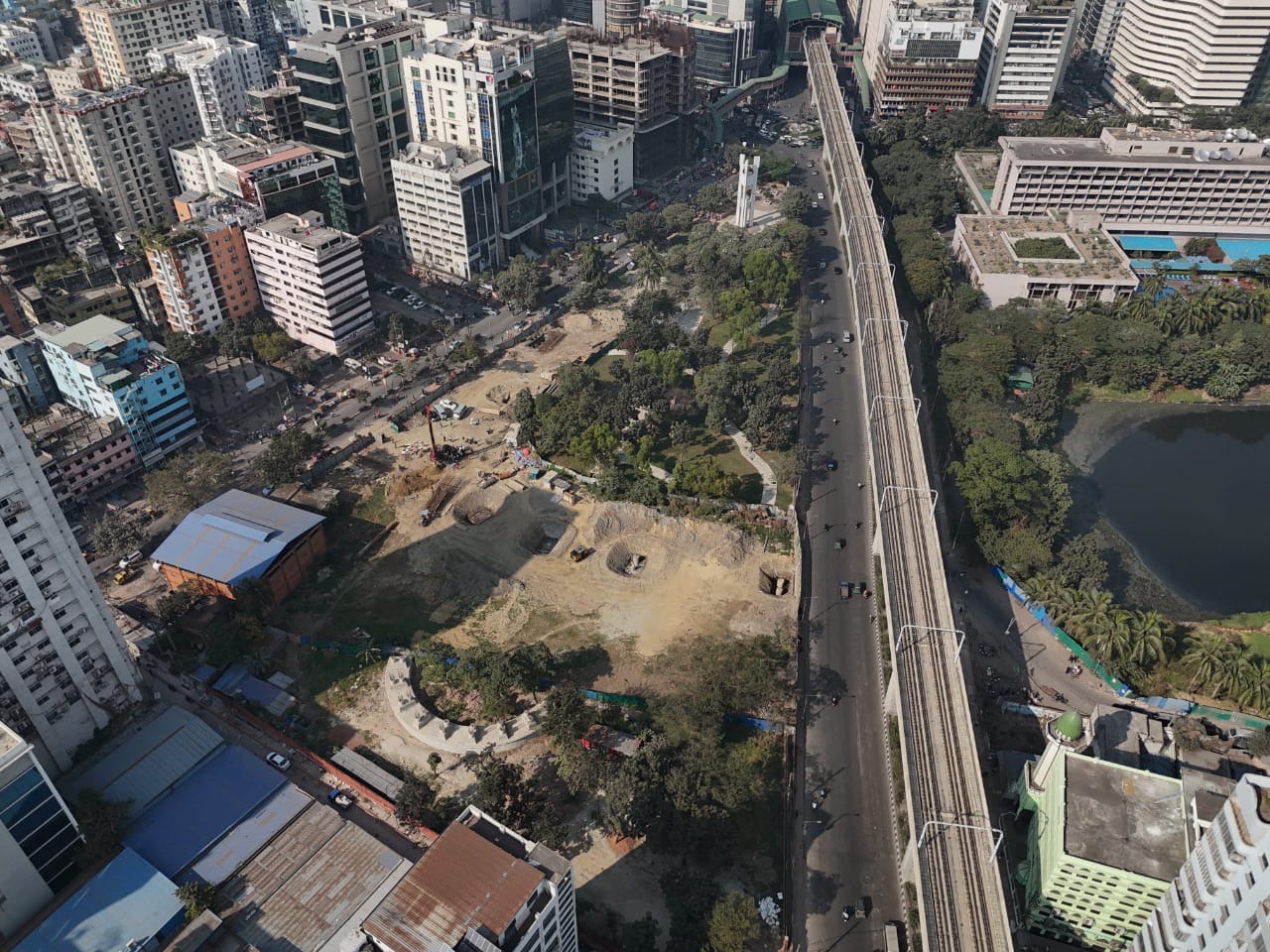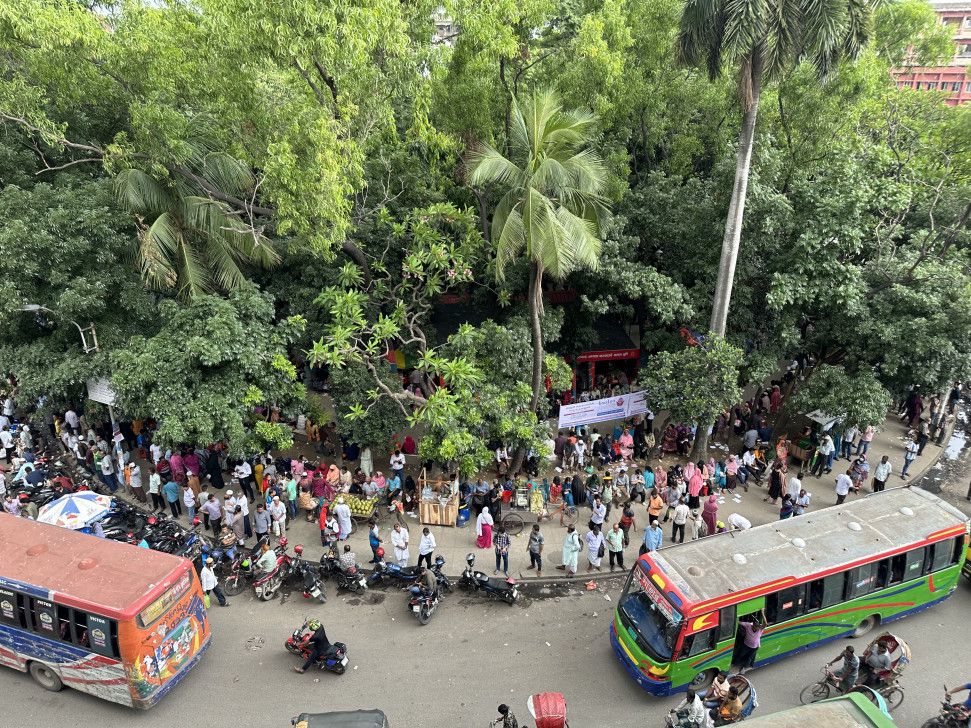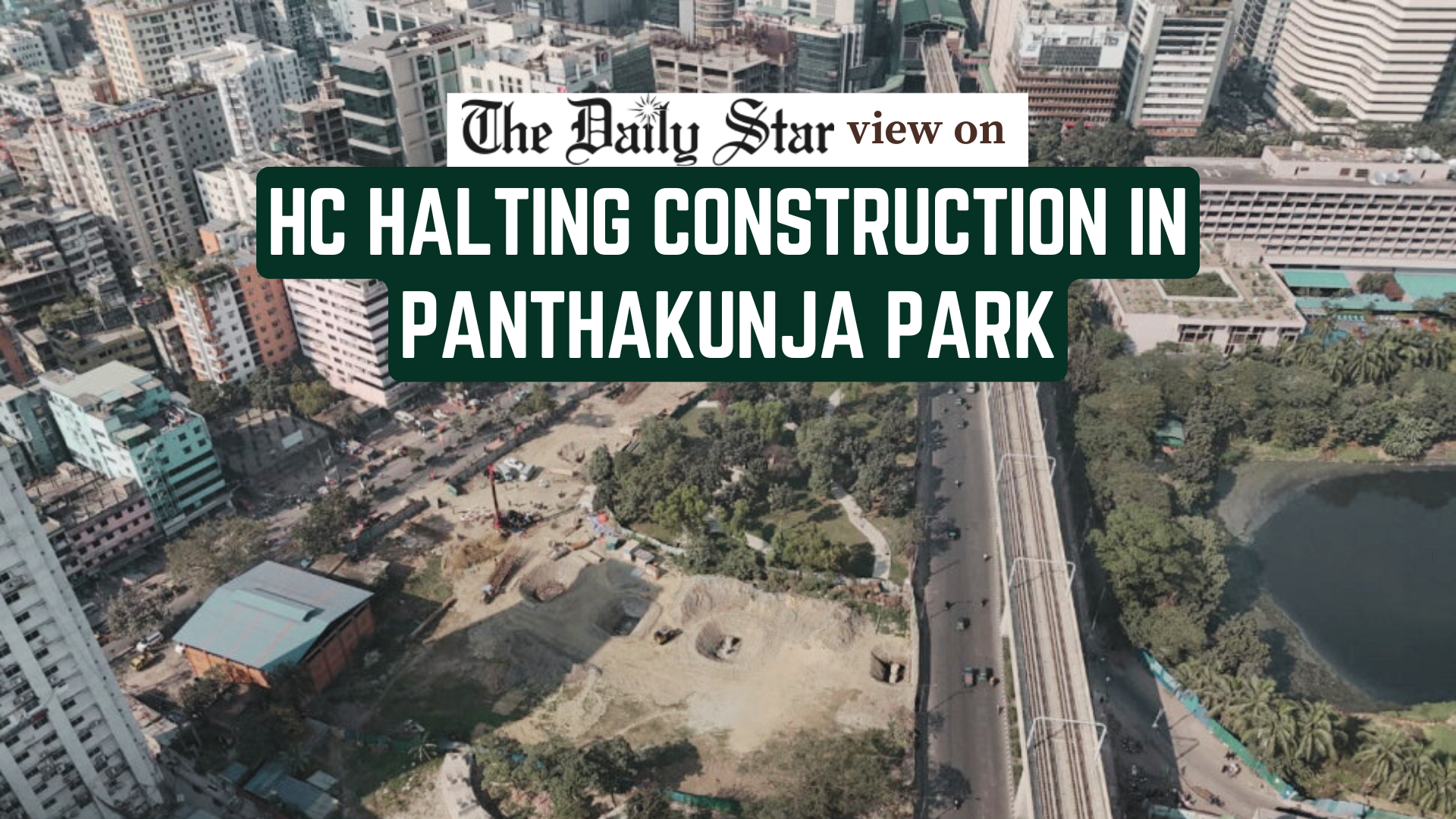The government must respect the court’s ruling on Hatirjheel and Panthakunja

One of the defining features of the previous developmental regime was its pursuit of unnecessary or ill-conceived projects that risked becoming burdens in the future. There are numerous examples of such projects. A number of them were highlighted in the white paper on the state of Bangladesh's economy prepared by the interim government earlier in its tenure. But sadly, it has failed to take any initiative to address this issue. On the contrary, instead of reviewing the projects or exposing any shady contracts with foreign governments, it has kept doubling down on them. One such case saw the government resume work on the FDC-to-Palashi extension of the Dhaka elevated expressway through the Hatirjheel Lake and Panthakunja Park, despite warnings from experts, widespread public outcry, numerous letters, and 168 days of sit-ins by members of the Bangladesh Tree Protection Movement.
Against this backdrop, the High Court on September 10, following a writ petition, issued a stay order restraining the government from carrying out any construction work at Panthakunja Park and Hatirjheel Lake. It also directed the relevant authorities to open the park for public use and restore Hatirjheel's original waterbody from Moghbazar to the Bangladesh Film Development Corporation (FDC) premises. Later, on September 16, the Supreme Court chamber judge upheld the High Court's order for the time being and asked the government to file a leave-to-appeal petition if it wished to challenge the decision.
This being the situation, let us take a look at some aspects of the project to understand how things came to this point.
The Awami League government initiated the elevated expressway project in 2011, and its deadline has since been pushed back repeatedly. The main design has also undergone several changes due to poor coordination among various government agencies, including the two Dhaka city corporations, RAJUK, and the Dhaka Transport Coordination Authority. In 2021, the FDC-to-Palashi ramp was added under the Support to Dhaka Elevated Expressway PPP Project. The main idea behind the expressway was to allow commuters to bypass Dhaka's notoriously congested traffic through a circular route. But repeated design changes resulted in several ramps being placed inside the city itself, including the FDC-to-Palashi one, making things worse for the city dwellers.
Between 2023 and 2024, more than 10 acres of Hatirjheel Lake were filled to construct the ramp, according to a report published in October last year. The report also cited locals who claimed that waterlogging problems had worsened as a result. While reviewing the project documents, an astonishing detail came to light—the originally planned route for the expressway ran just behind the Pan Pacific Sonargaon hotel and the surrounding commercial area; but then the design was changed, shifting it from the commercial zone to a highly dense residential area that also houses several schools and colleges. And the consultant responsible for this change was also the consultant for the Sonargaon hotel extension project. This is a clear case of conflict of interest, and a blatant attempt to put the interests of private commercial entities over those of the public.

It can be recalled that the Appellate Division of the Supreme Court had already ruled any construction on Hatirjheel waterbody illegal while ruling against the BGMEA building in 2017. The expressway extension project also violates several laws and guidelines, including the Detailed Area Plan finalised in 2022, which prohibited filling any waterbody in the metropolitan region, and the Playground, Open Space, Park, and Natural Water Reservoir Conservation Act, 2000, which forbids altering the nature of waterbodies. The government entities responsible for protecting these spaces and waterbodies were unable to act due to the direct involvement of the Prime Minister's Office (PMO) under the previous autocratic regime. But what's stopping the present administration from suspending this work?
The damage has already been substantial. In December 2024, the government cut down nearly 2,000 trees of 40 different species in Panthakunja Park, one of the few remaining green open spaces in one of the busiest parts of the city. The plan was to build a ramp at the already overburdened Karwan Bazar intersection and a flyover along the narrow roads of Hatirpool, Katabon, and Nilkhet, which would land at the Palashi intersection. If we consider the exit point of the flyover, on one side is Dhaka University, directly ahead is BUET, and on the other side are Eden College and several other educational institutions. Having an exit for high-speed vehicles from the expressway on such a sensitive, narrow road raises a serious safety question, and the impact on the environment of those institutions could be significant. Experts frequently highlight Dhaka's earthquake risks and lack of preparedness in this regard. Building a flyover on these narrow roads will undoubtedly increase the danger in the event of fire, earthquake, or any other disaster for the residents of Kathalbagan and Kalabagan areas.
There is another legal issue with Panthakunja Park. In 2015, after the Bangladesh Environmental Lawyers Association (BELA) filed a writ petition challenging the construction of a Secondary Transfer Station (for waste management) at Panthakunja Park, a division bench of the High Court ruled in BELA's favour, declaring the STS construction illegal. It also directed that the park be protected and maintained as an "open space," in accordance with the city's master plan. Despite these clear instructions, the interim authorities destroyed the lush green park and continued work on the extension. No environmental clearance certificate was taken for this construction work either, according to a letter from the Department of Environment, issued after an RTI request filed by the Bangladesh Tree Protection Movement.
This tendency to overlook court directives, legal prohibitions, or public concerns was understandable under an autocratic regime. But following the bloody uprising of July 2024, there was hope that the rule of law would be upheld and that the interim government would break the cycle of disrespect shown towards the courts by the previous regime. Yet, to our surprise, this government seems to be following the same path. The government must remember that its duty is to listen to the people, not the other way round. We sincerely hope it will respect the court orders, and immediately halt construction of the elevated expressway from FDC to Palashi. The restoration work for Panthakunja and Hatirjheel should also start immediately to protect the local biodiversity, bird nesting areas, and the city's ever-diminishing green spaces.
Amirul Rajiv and Naim Ul Hasan are coordinators at the Bangladesh Tree Protection Movement.
Views expressed in this article are the authors' own.
Follow The Daily Star Opinion on Facebook for the latest opinions, commentaries and analyses by experts and professionals. To contribute your article or letter to The Daily Star Opinion, see our guidelines for submission.





 For all latest news, follow The Daily Star's Google News channel.
For all latest news, follow The Daily Star's Google News channel. 


Comments